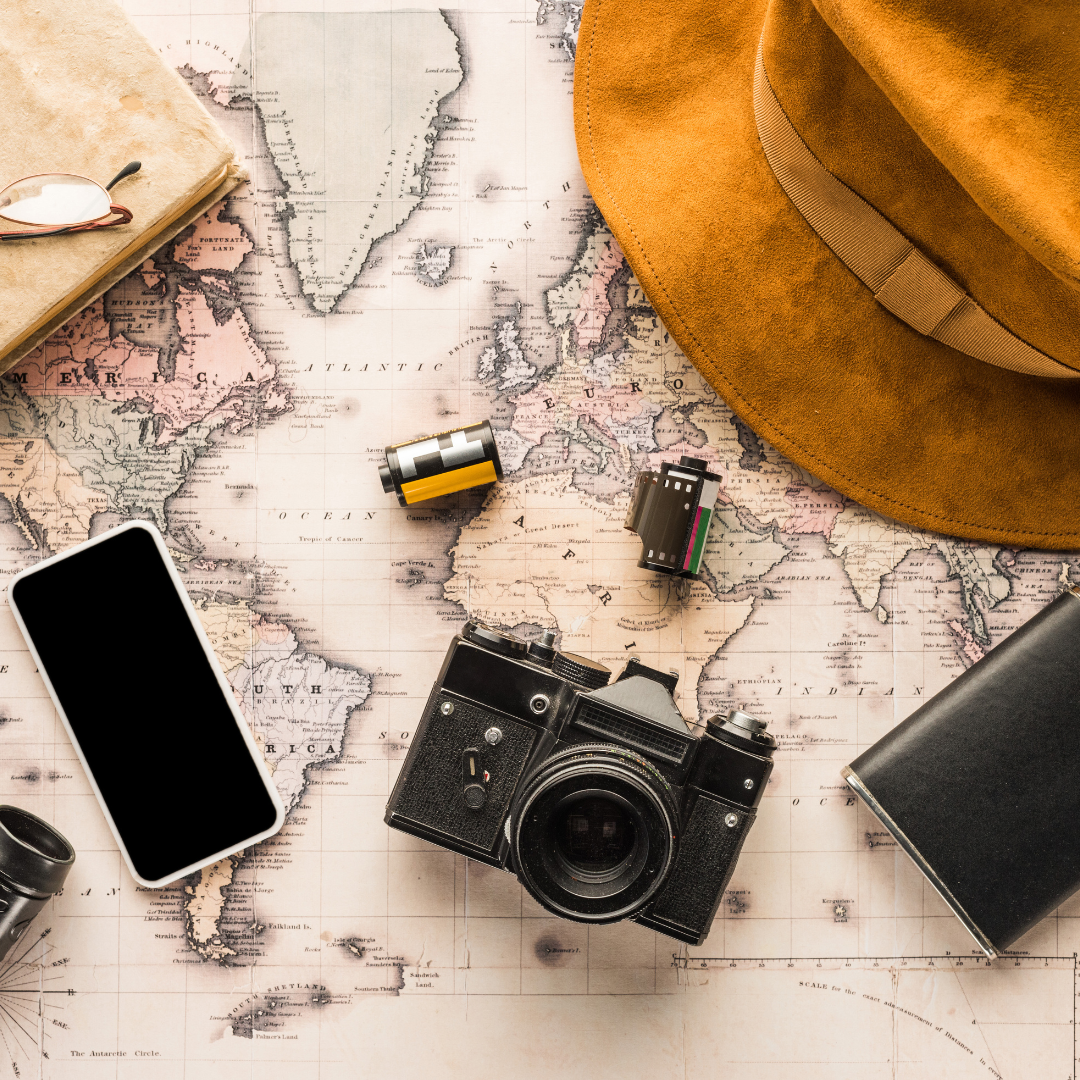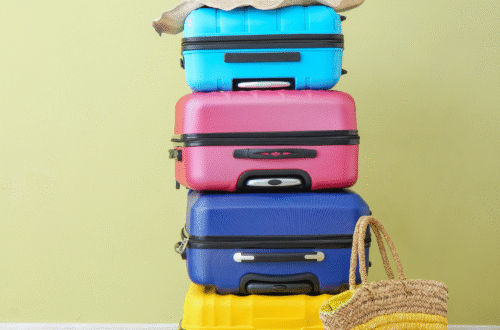
How to Keep Your Valuables Safe While Traveling: Essential Tips for Secure Journeys
Traveling often involves the thrill of discovery, but it also brings concerns about keeping valuables safe. Implementing practical strategies not only protects possessions but also enhances peace of mind during the journey. Whether it’s securing passports, cash, or electronics, understanding how to safeguard these items is essential for any traveler.
Many travelers underestimate the need for preparation when it comes to securing their valuables. Simple measures, such as using hotel safes or employing anti-theft bags, can make a significant difference. Beyond physical security, being aware of potential scams and local crime rates can further contribute to a safer travel experience.
Maintaining vigilance and adopting smart habits while on the move can go a long way. Recognizing the importance of both planning and situational awareness allows travelers to focus on enjoying their adventure without constant worry about their belongings.
Preparing Your Valuables Before Travel
Before heading out, it’s crucial to prepare valuables properly. This includes selecting essential items, organizing important documents securely, and optimizing luggage security.
Choosing Essential Valuable Items
Selecting what to bring is key. Individuals should prioritize valuables based on necessity and risk. Items like credit cards, cash, electronics, and jewelry should be weighed based on their importance and vulnerability.
Packing a minimal amount of cash can reduce loss risk. It’s advisable to leave valuable jewelry at home. Instead, carry a small amount of essential electronics. Using a portable safe for storing these items during the trip can provide extra protection.
Organizing Important Documents Securely
Important documents must be stored in a secure but accessible manner. This includes passports, travel insurance, and reservation confirmations. Keeping physical copies is wise, but digital backups enhance cybersecurity.
For physical documents, use a TSA-approved lock to secure your luggage. Keeping documents in a travel wallet can help maintain organization. Splitting documents between multiple bags can minimize loss if one bag goes missing.
Optimizing Luggage Security
Luggage security is vital for protecting valuables. Choosing TSA-approved luggage allows easier access for airport security while keeping items safe. Utilizing locks that meet TSA regulations prevents unauthorized access.
Travelers should opt for bags designed with anti-theft features. These often include lockable zippers and hidden compartments. Depending on the destination, consider using a portable safe to deter theft during transit or at accommodations.
Best Ways to Protect Your Valuables While Traveling
Traveling can expose valuables to various risks. Utilizing specific strategies can significantly enhance security and peace of mind while away from home.
Using Money Belts and Hidden Pockets
Money belts are a practical choice for securing cash and important documents. They can be worn under clothing, making them difficult to access for thieves.
Many belts feature multiple compartments for organization. Travelers should consider models with zippers or Velcro closures to prevent accidental loss.
Hidden pockets in clothing also offer an alternative. Many travel garments come with built-in pockets designed specifically for holding valuables. Choosing clothing with these features helps keep belongings discreet and protected from pickpockets.
Leveraging Anti-Theft Backpacks and Accessories
An anti-theft backpack can provide an added layer of security. These backpacks often include features like lockable zippers, cut-resistant straps, and RFID-blocking pockets.
Travelers should look for backpacks that are comfortable and spacious while still offering security features. Brands like Pacsafe provide multiple options that combine style with functionality.
In addition to backpacks, accessories like anti-theft crossbody bags are worthwhile. These bags allow for easy access while maintaining a secure feel, making them a valuable option for daily excursions.
Securing Valuables with RFID-Blocking Gear
RFID-blocking gear helps safeguard against electronic pickpocketing. Many travel wallets and bags incorporate this technology, preventing unauthorized scanning of personal information.
When choosing RFID-blocking products, travelers should prioritize quality and durability. Not all products offer the same level of protection, so it’s vital to read reviews and user experiences.
Investing in these items can significantly reduce the risk of identity theft while traveling. For added peace of mind, using an RFID wallet alongside other protective measures can create a comprehensive strategy for securing valuables.
Storing Valuables in Hotel Safes
Hotel safes make for a secure location to store valuable items. Most hotels provide in-room safes that are easy to use and accessible.
Travelers should take the time to familiarize themselves with the safe’s operation and ensure it’s functioning properly. Always use the safe for items like passports and extra cash when leaving the room.
For extra security, travelers can inquire if the hotel offers a security deposit box at the front desk. This additional measure may provide peace of mind by securing valuables in a monitored location.
Travel Strategies to Minimize Theft Risks
Traveling can expose individuals to various theft risks. To protect valuables, it is essential to recognize scams, understand pickpocketing hotspots, use decoy wallets, and adapt strategies for solo travel safety. Each approach helps enhance security and reduce vulnerability to theft.
Recognizing and Avoiding Common Travel Scams
Travel scams can take many forms, from counterfeit goods to deceptive tours. Awareness is crucial. Common scams include:
- Fake charities: Scammers may solicit donations for non-existent causes.
- Overpriced services: Tour guides offering services without clear pricing can inflate costs.
- Distraction techniques: Thieves may create a diversion while an accomplice steals belongings.
Travelers should research destinations and seek recommendations for tours or services. A healthy skepticism can help avoid falling victim to such schemes. Always trust instincts; if something feels off, it’s best to move on.
Understanding Pickpocketing Hotspots
Certain locations are more prone to pickpocketing, particularly crowded areas. Popular hotspots include:
- Public transport: Subways and buses are prime locations for thieves.
- Tourist attractions: High foot traffic attracts pickpockets.
- Markets and festivals: Busy environments provide cover for stealthy theft.
Travelers should remain vigilant in these areas. Keeping valuables in front pockets, using crossbody bags, and maintaining awareness of surroundings can deter potential thieves. It’s beneficial to frequently check pockets and bags to ensure nothing is missing.
Carrying and Using a Decoy Wallet
A decoy wallet is an effective strategy to dissuade thieves. It allows individuals to keep their important items secure while carrying a secondary wallet with minimal cash and old cards. Here’s how to effectively use a decoy wallet:
- Choose an inconspicuous wallet: Keep it simple and not visually appealing.
- Limit contents: Include just a small amount of cash and expired cards; nothing of value.
- Store it securely: Place it in a less accessible pocket or compartment.
This approach confuses thieves and reduces the risk of losing essential items. By making the decoy wallet accessible while protecting valuables, travelers can enhance their safety.
Adapting for Solo Travel Safety
Solo travelers face unique challenges regarding theft. They often appear vulnerable, making them targets for thieves. To enhance safety, individuals should consider the following:
- Stay aware of surroundings: Regularly check for suspicious individuals or activities.
- Plan an itinerary: Familiarize oneself with the area, including safe spots and potential risks.
- Utilize technology: Use apps or GPS to stay oriented and avoid getting lost.
Engaging with locals and other travelers can provide valuable insights about safety practices. By being proactive, solo travelers can significantly reduce their risk of theft and enjoy their adventures with confidence.
Enhancing Valuables Security With Advanced Measures
Travelers can take further steps to secure their valuables through travel insurance and utilizing digital protection methods. These strategies enhance the security of possessions, providing peace of mind during trips.
Purchasing Comprehensive Travel Insurance
Comprehensive travel insurance protects against financial losses due to theft or damage to valuables. It is vital for travelers to evaluate policies carefully, considering factors like coverage limits, deductibles, and specific exclusions.
When selecting a policy, individuals should look for features such as:
- Coverage for personal belongings: Includes electronics, luggage, and jewelry.
- Emergency assistance: Provides support for theft incidents.
- Trip interruption coverage: Protects against unforeseen events impacting travel plans.
By investing in a suitable policy, travelers can minimize the impact of unfortunate incidents.
Utilizing Two-Factor Authentication for Digital Protection
Two-factor authentication (2FA) significantly enhances the security of digital accounts that may contain sensitive information or travel-related data. Travelers should enable 2FA on email, banking, and travel booking accounts to prevent unauthorized access.
Two-factor authentication typically involves:
- Something the user knows: A password or PIN.
- Something the user has: A smartphone app, SMS code, or hardware token.
By utilizing 2FA, travelers can add an extra layer of protection to their valuable digital assets, reducing the risk of identity theft or data breaches during their travels.





